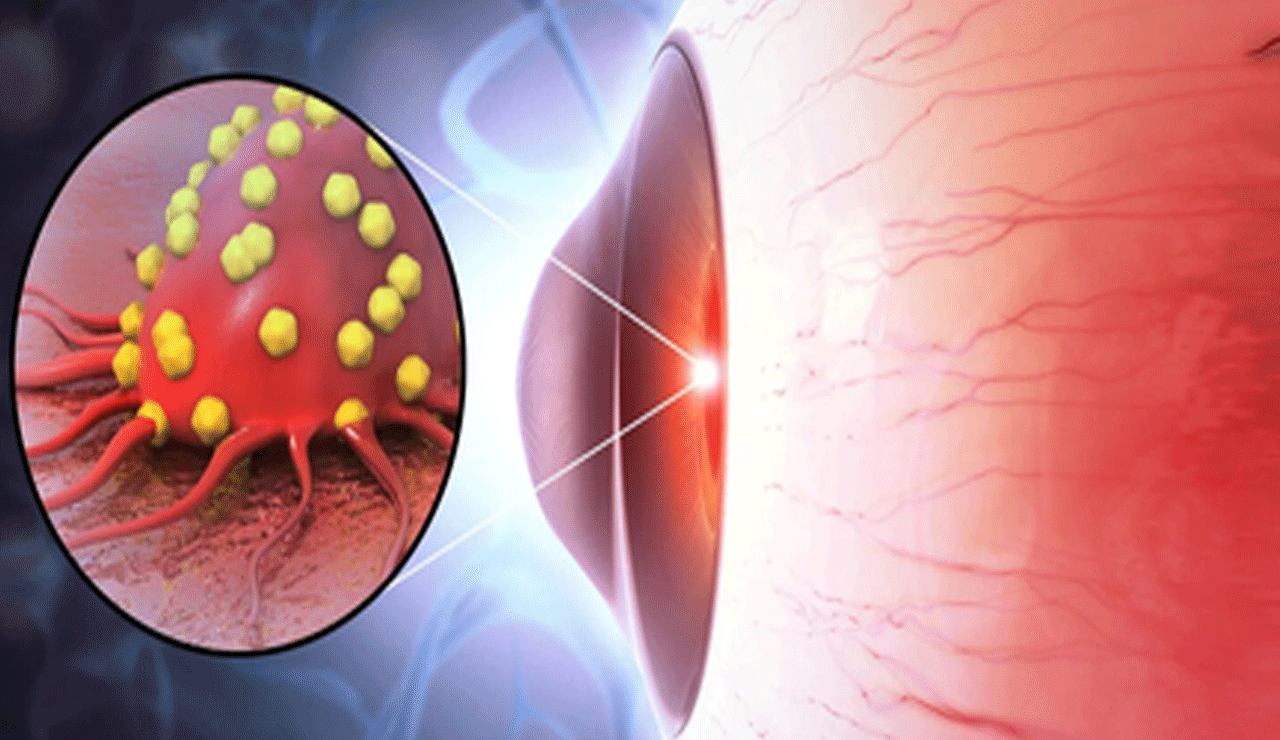Study shows new drug delivery system effective against rare eye cancer
A recent study by a team of US researchers has unveiled a promising treatment option for metastatic uveal melanoma (mUM), a rare and aggressive eye cancer that often spreads to the liver.

A recent study by a team of US researchers has unveiled a promising treatment option for metastatic uveal melanoma (mUM), a rare and aggressive eye cancer that often spreads to the liver.
Table of Contents
What Is Metastatic Uveal Melanoma (mUM)?
Uveal melanoma is a rare cancer that forms in the eye and can metastasize, particularly to the liver. Once it spreads, it becomes difficult to treat and is associated with poor survival outcomes.
The Breakthrough Treatment: Melphalan Hepatic Delivery System
Led by the Moffitt Cancer Center in Florida, the multi-institutional study explored the effectiveness of a melphalan hepatic delivery system, a drug-device combination that directly targets cancer in the liver. This liver-directed therapy, known as percutaneous hepatic perfusion, delivers high doses of chemotherapy (melphalan) directly to the liver while minimizing exposure to the rest of the body.
Study Design and Results
The study, published in the Annals of Surgical Oncology, compared the melphalan hepatic delivery system against the best alternative care available.
Improved Cancer Control and Survival Rates
- Progression-Free Survival:
- Melphalan group: 9.1 months
- Alternative care: 3.3 months
- Disease Control Rate:
- Melphalan group: 80%
- Alternative care: 46.9%
- Median Overall Survival:
- Melphalan group: 18.5 months
- Alternative care: 14.5 months
Lead author Dr. Jonathan Zager, a surgical oncologist at Moffitt, emphasized the importance of this therapy:
“This new treatment gives hope to patients with this historically tough-to-treat cancer. It provides an option that does not interfere with quality of life and offers a chance at longer survival.”
How the Drug Delivery System Works
Unlike conventional chemotherapy, this treatment isolates the liver using catheters and balloons during the procedure. The chemotherapy is infused directly into the liver and then filtered out before it can circulate through the rest of the body. This targeted approach significantly reduces systemic side effects.
FDA Approval and Safety Profile
The US Food and Drug Administration (FDA) approved the melphalan hepatic delivery system in August 2023. While some patients experienced side effects—mostly related to blood cell counts—these were manageable and typically resolved with basic outpatient care and observation.
What’s Next?
While the study shows promising results, researchers note that further research is essential to validate the long-term benefits and expand access to this innovative therapy for mUM patients.
